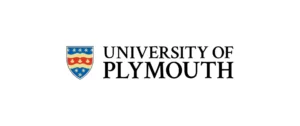Dreaming of a medical career in the United Kingdom? With its world-class universities, cutting-edge NHS training, and globally recognized degrees, it’s no surprise the UK draws thousands of aspiring doctors annually, over 75,000 UCAS applications in 2024 for just 8,600 spots (UCAS, 2025). But how do you secure a place? What are the costs, requirements, and pathways, direct or indirect? Whether you’re a high school leaver, an international student, or considering a career switch, this 2025 guide has you covered. Sourced from GOV.UK, UCAS, and top uni data, here’s everything you need to know to study medicine in the United Kingdom.
Pathways to Study Medicine: Direct vs. Indirect Routes

The UK offers two main routes into medicine—direct entry for school leavers and indirect paths for those needing an alternative approach. Let’s explore both.
Direct Pathways
-
Standard Entry (5–6 Years)
- What: Straight into an MBBS (Bachelor of Medicine, Bachelor of Surgery) or equivalent after high school.
- How: Apply via UCAS by October 15, 2025, for 2026 entry (UCAS deadline). Most UK unis offer 5-year courses; 6 years include an intercalated BSc (e.g., Oxford).
- Who: School leavers with A-levels, IB, or equivalent.
- Requirements:
- A-levels: AAA, including Chemistry and Biology (Oxford, 2025).
- IB: 36–39 points, with 6+ in Higher Level Chemistry/Biology (UCL, 2025).
- Admissions Tests: UCAT (27 unis, e.g., Manchester) or BMAT (e.g., Cambridge, UCL—check 2025 updates as BMAT may phase out). Average UCAT score: 2600+ (UCAT, 2025).
- English: IELTS 7.0–7.5 (no band below 6.5) or TOEFL 100 for internationals (British Council, 2025).
- Work Experience: Healthcare volunteering/shadowing (GMC, 2025).
- Example: Manchester’s MBChB—5 years, direct entry post-A-levels.
-
Foundation Year (6 Years)
- What: A pre-med year (Year Zero) before the 5-year MBBS, bridging gaps for internationals or those with non-standard qualifications.
- How: Apply via UCAS; mandatory at unis like Bristol for non-UK quals (e.g., 12-year systems).
- Who: Internationals without 13-year schooling or weaker grades (e.g., below AAA).
- Requirements:
- IELTS 6.5 (entry), progressing to 7.0.
- High school diploma (80%+ in sciences, British Council, 2025).
- Fees: £15,000–£25,000 for Year Zero (INTO, 2025).
- Example: King’s College London Foundation—90% progression rate to MBBS (KCL, 2025).
Indirect Pathways
-
Graduate Entry Medicine (GEM, 4 Years)
- What: Accelerated MBBS for grads with a prior degree (any field).
- How: Apply via UCAS by October 15, 2025; 33 UK unis offer GEM (e.g., Warwick, Newcastle).
- Who: Degree holders (2:1 or higher, often science-related).
- Requirements:
- Bachelor’s degree (e.g., Biology, 2:1 from UCL, 2025).
- GAMSAT or UCAT (e.g., Warwick uses GAMSAT, 55+ average, 2025).
- IELTS 7.5 for internationals.
- Relevant experience (e.g., NHS volunteering).
- Example: Oxford’s GEM—4 years, £37,500/year for internationals (Oxford, 2025).
-
Transfer from Another Degree
- What: Start a related degree (e.g., Biomedical Sciences), then apply to medicine.
- How: Complete 1–2 years, excel academically, and reapply via UCAS or internally (rare—check uni policy).
- Who: Students unsure of medicine or lacking initial entry qualifications.
- Requirements:
- 1st-class marks in Year 1/2 (e.g., 75%+, Manchester, 2025).
- UCAT/BMAT post-Year 1.
- Limited spots—e.g., Bristol accepts 10 transfers yearly (Bristol, 2025).
- Example: UCL Biomedical Sciences grads often transition—5% success rate (UCL, 2025).
-
A-Level/IB After Another Path
- What: Study A-levels/IB later, then apply directly.
- Who: Career changers or internationals without prior qualifications.
- How: Enroll in a UK college (e.g., MPW, £30,000/year), sit exams, and apply via UCAS.
- Requirements: AAA, IELTS 7.0+, funding for 2 years pre-med.
Top Medical Schools in the United Kingdom 2025
The UK has 44 GMC-accredited medical schools (39 in England, 5 in Scotland, etc.). Here are the top picks (QS Rankings, 2025; GMC, 2025):
- Oxford University: #2 globally, 6-year MBBS with BSc, £37,500–£50,148/year (internationals). BMAT required.
- Cambridge University: #3 globally, 6 years, £67,194/year (internationals). BMAT, research-heavy.
- UCL: #8 globally, 6 years, £47,610/year (internationals). BMAT, London NHS links.
- Imperial College London: 5 years, £50,400/year (internationals). UCAT, top labs.
- Edinburgh University (Scotland): 6 years, £35,900/year (internationals). UCAT, historic excellence.
Tuition Fees: What You’ll Pay in the UK 2025
Fees vary by UK nation and student status—here’s the latest (GOV.UK, UCAS, 2025):
-
International Students:
- Undergrad (MBBS): £25,000–£67,892/year (e.g., Cambridge). Average: £35,000–£45,000 (England); Scotland slightly lower (£32,000–£50,000).
- Foundation Year: £15,000–£25,000 (INTO, 2025).
- GEM: £32,000–£50,000/year (e.g., Warwick, £42,750).
- Total: £150,000–£400,000+ over 5–6 years, plus living costs (£14,880/year, Home Office, 2025).
-
British Students:
- Undergrad:
- England: £9,535/year (capped, GOV.UK, 2025).
- Scotland: £1,820/year (Scottish residents only, Education Scotland, 2025).
- Wales: £9,000/year with grants (Student Finance Wales, 2025).
- Loans cover full fees in England/Wales.
- GEM: £9,535–£15,000/year (self-funded or partial loans).
- Total Debt: £50,000–£60,000 (Times Higher Education, 2025).
- Undergrad:
- Free Study?: Internationals—near impossible (Chevening covers ~1,500 globally, 2025). Brits—loans in England/Wales, free in Scotland for Scots.
Entry Requirements: What You Need
General Requirements
-
Academic:
- Direct: A-level AAA (Chemistry + Biology/Physics/Math) or IB 36–42.
- Foundation: 80%+ in high school sciences.
- GEM: 2:1 degree, science preferred.
- Tests: UCAT (2600+), BMAT (5.5+), or GAMSAT (55+). Register by July 2025 (UCAT.ac.uk).
- Experience: 2+ weeks in healthcare (GMC, 2025).
- Personal Statement: Passion, skills, commitment (UCAS, 2025).
Language Requirements
-
Internationals:
- IELTS: 7.0–7.5 (no band <6.5) or TOEFL 100 (British Council, 2025).
- Exceptions: GCSE English (Grade B) or IB English (5+).
- Deadline: Submit with UCAS or pre-arrival (e.g., Manchester, 2025).
From Another Degree
- Feasibility: Tough but possible—unis like Exeter allow Year 1 transfers with 75%+ and UCAT (Exeter, 2025).
- Steps:
- Study Biomedical Sciences/Chemistry (3 years, £15,000–£25,000/year).
- Ace UCAT/BMAT.
- Reapply—5–10% success rate (UCL, 2025).
Application Process: How to Get In
- Choose Unis: Max 4 med schools via UCAS (2025 rule).
- Tests: Book UCAT (June–September 2025, £85) or BMAT (October 2025, £78).
- Apply: Submit UCAS by October 15, 2025 (£27.50 fee).
- Interviews: MMI or panel (November 2025–March 2026). 70% interviewed (Manchester, 2025).
- Offers: By April 2026—accept via UCAS.
Visa and Funding for Internationals
- Student Visa: £490 + £14,880 living costs (28-day proof, Home Office, 2025).
- Scholarships: Rare—GREAT (£10,000), uni awards (£1,000–£5,000, e.g., Imperial, 2025).
- Work: 20 hours/week term-time, full-time holidays (GOV.UK, 2025).
Pros and Cons of Studying Medicine in the UK
-
Pros
- Top-tier unis (8 in QS Top 100, 2025).
- NHS training—100% employment rate (GMC, 2025).
- Graduate Visa (2 years post-study).
-
Cons
- High fees (£150,000+ for internationals).
- Competitive entry (11:1 applicant-to-place ratio, UCAS, 2025).
- No direct transfers from overseas med schools (GMC, 2025).
Your Next Steps
- Research: Visit UCAS.com and check uni sites (e.g., ox.ac.uk, ucl.ac.uk).
- Prep: Book UCAT/BMAT, boost English (IELTS 7.0+).
- Experience: Volunteer now in hospitals, clinics, and care homes.
- Apply: Start UCAS early—deadline October 15, 2025.
Final Word: Is It Worth It?
Studying medicine in the United Kingdom in 2025 is a hefty investment—time, money, effort—but the rewards are immense: a top degree, an NHS career, and global mobility (189 visa-free countries, Henley & Partners, 2025). Direct or indirect, your path starts with planning. Got questions? UCAS, GOV.UK and uni admissions have your answers—begin today!









